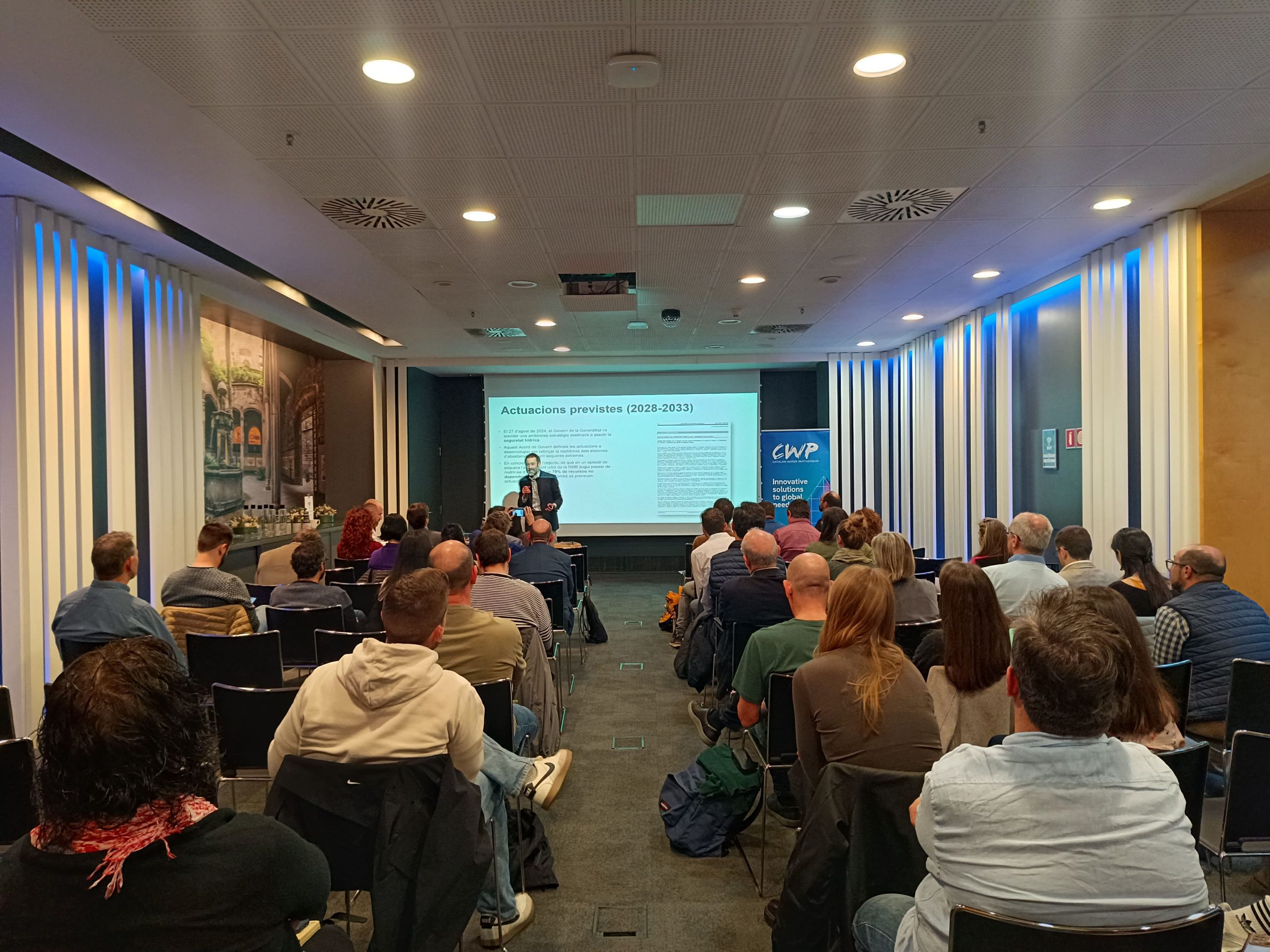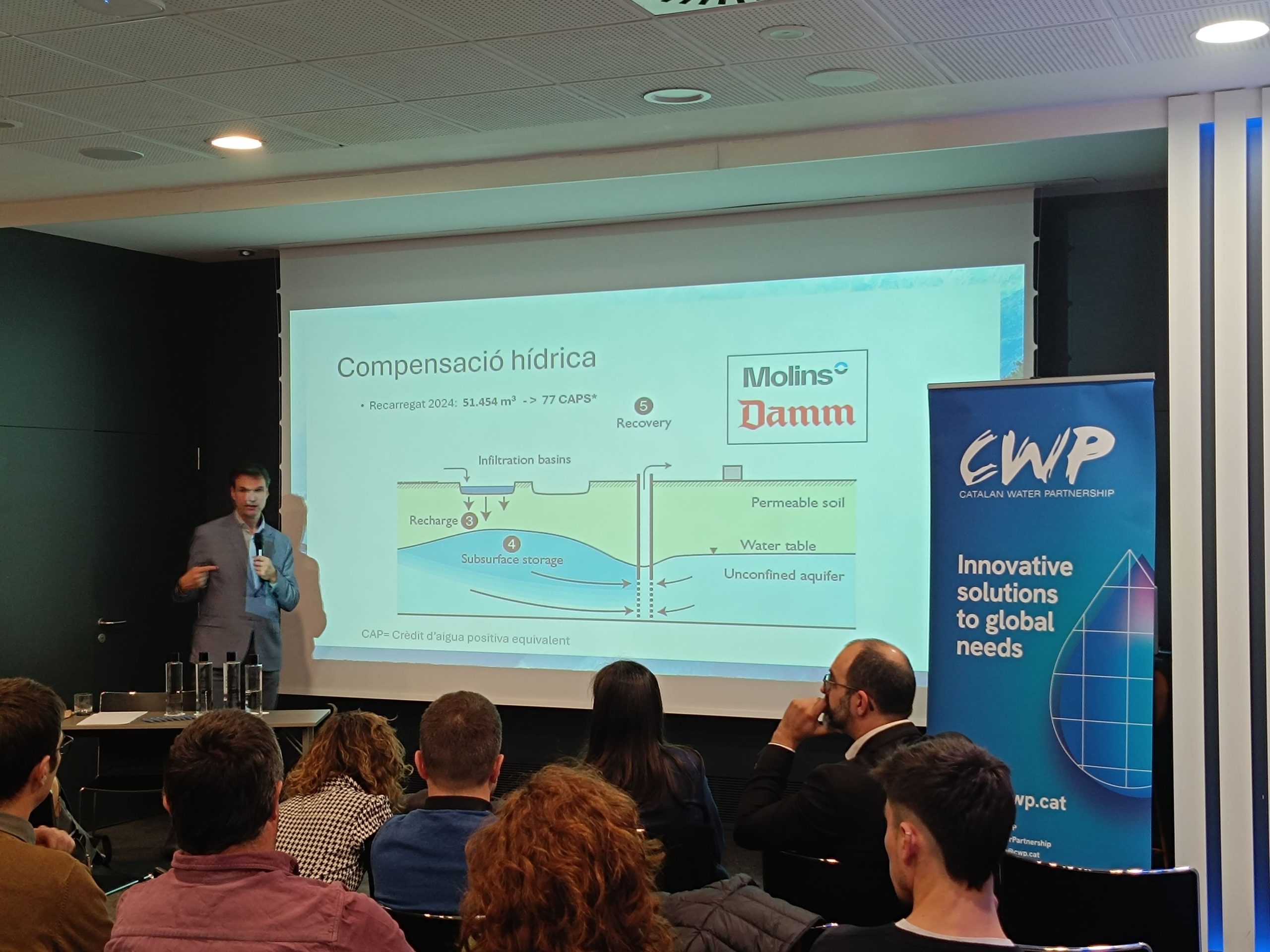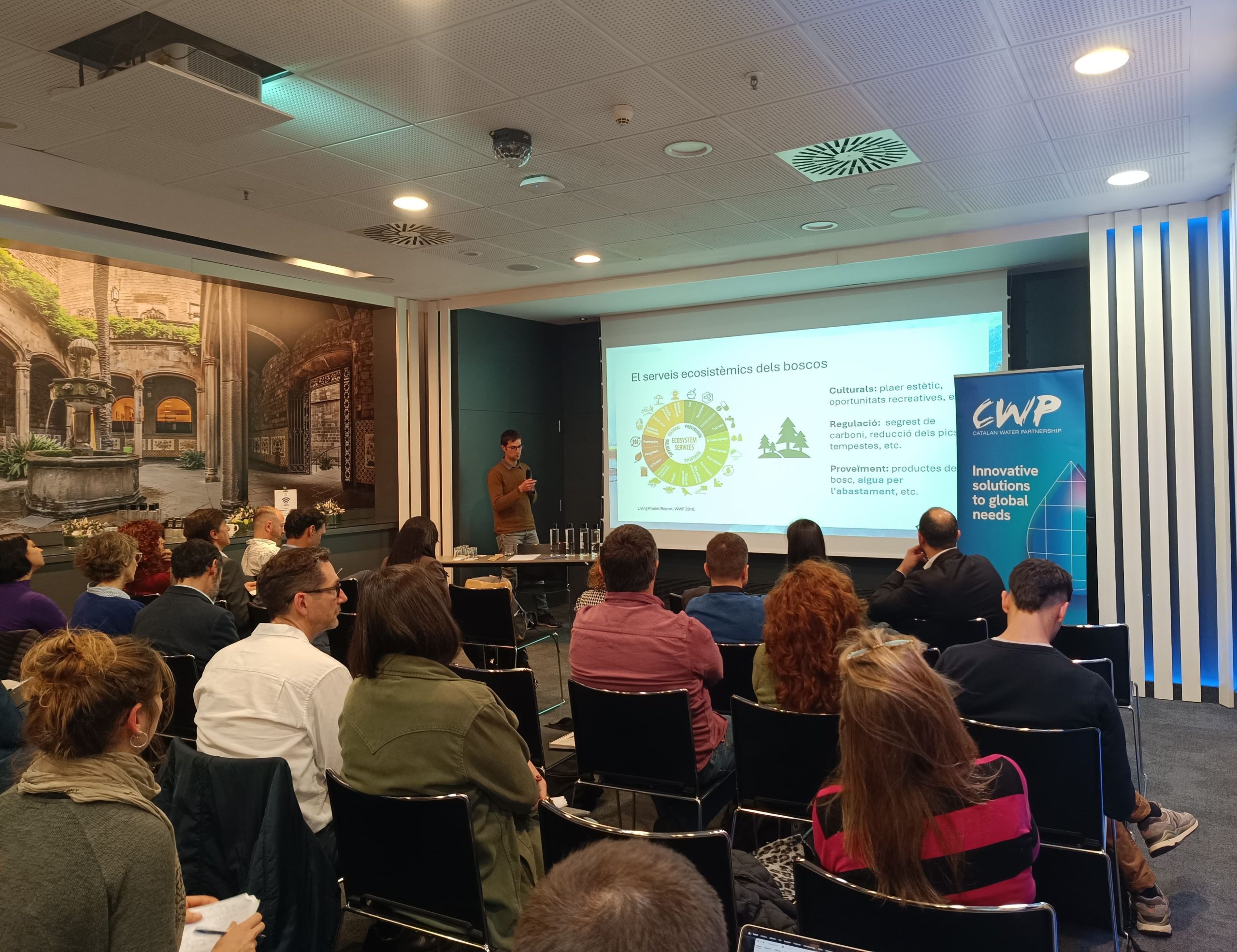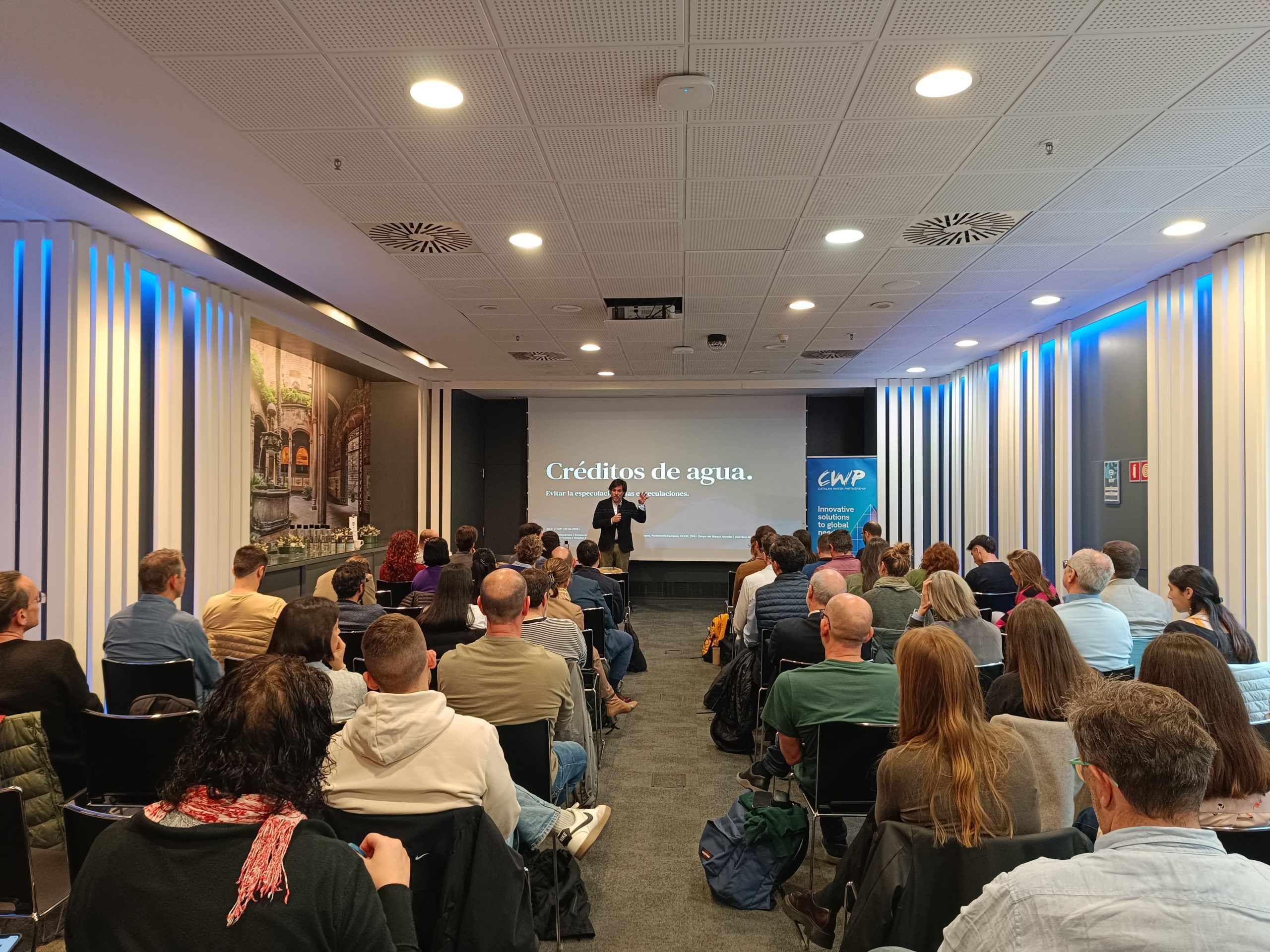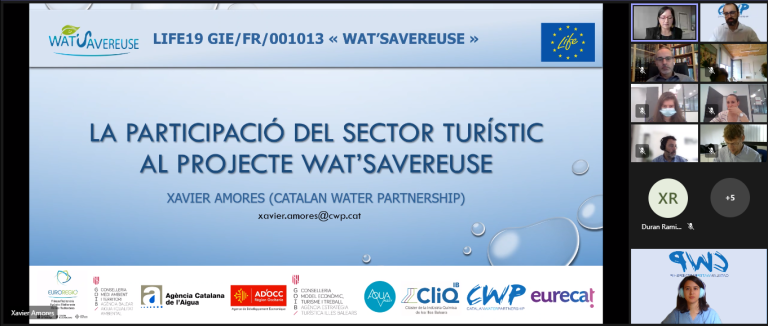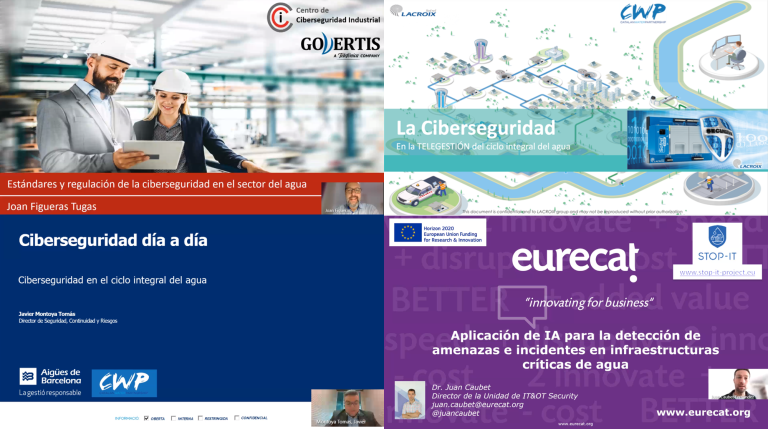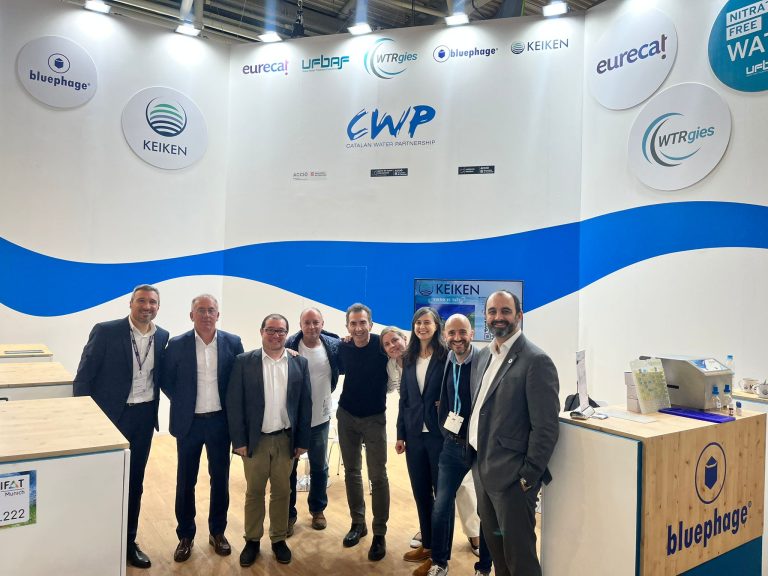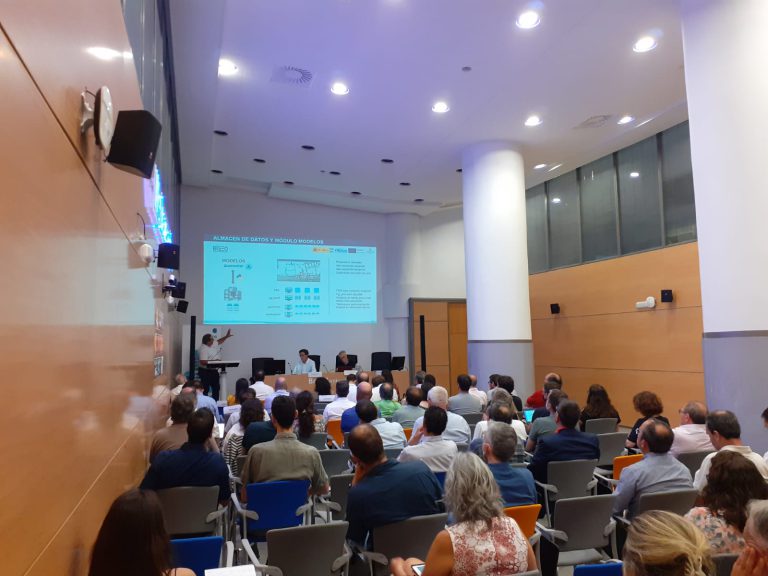Water Footprint Compensation and Water Credits: An Expert Look at a Topic That Is Gaining Importance
A conference that brought together experts, companies and administrations to discuss the potential of water credits as a new instrument for a more efficient and sustainable management of water resources.
Barcelona, 2 April 2025 – At a time when drought and climate change are increasing pressure on water resources, water credits are emerging as an innovative instrument to offset the water footprint and move towards more efficient and sustainable water management. This mechanism allows companies and organizations that consume water to offset its impact by financing actions to improve, save or regenerate water in other parts of the territory, thus generating a neutral or even positive balance in the use of the resource.
The main objective of the conference was to publicize the functioning of this system and the main measures to compensate for the water footprint, with the aim of promoting strategies that help companies and institutions reduce their impact on water resources and increase their resilience to scarcity. Experts from the business fabric, academia and public administration shared visions, experiences and challenges around this emerging tool, which is attracting more and more interest internationally.
The Catalan Water Partnership promotes innovation and collaboration between the actors involved in the management of water resources with the aim of improving the competitiveness of the sector in a context increasingly conditioned by the effects of climate change, such as growing water stress. In this sense, as highlighted by the director of the cluster, Xavier Amores, during the welcome to the event, “The CWP wanted to promote a conference focused on innovative mechanisms such as water credits that can help companies to go beyond productive efficiency and also generate social and environmental benefits for the community, in line with the concept of shared value“.
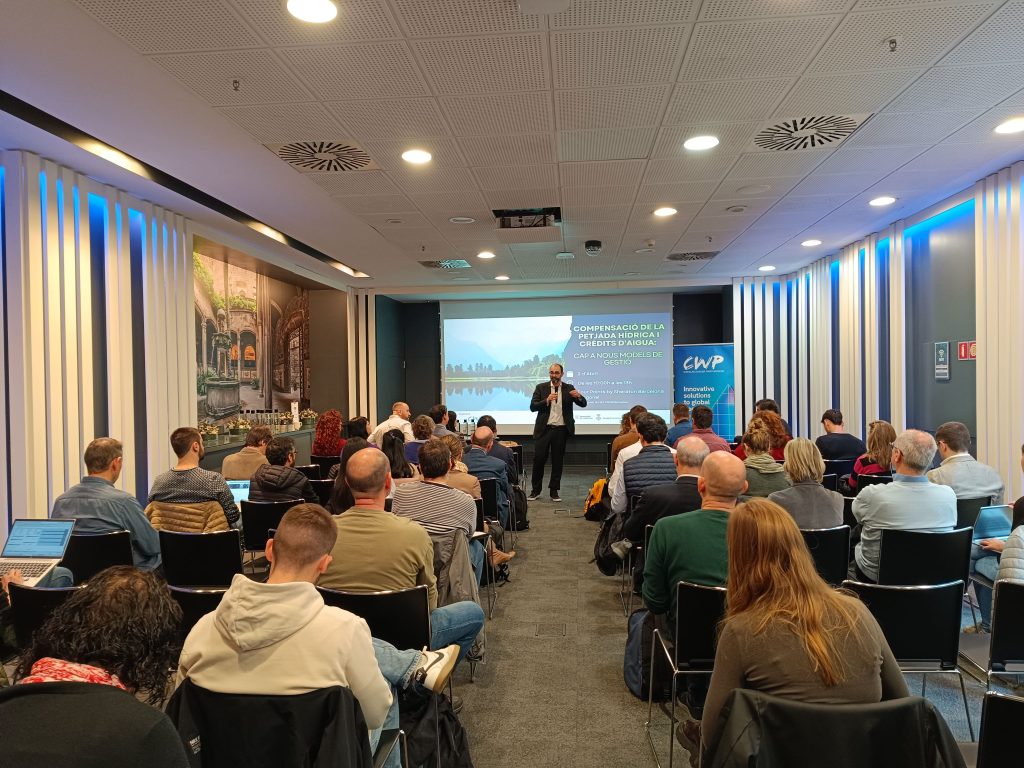
Xavier Amores, director del CWP
Gabriel Blejman, director and founder of Circa and partner of Aquapositive, opened the interventions with an introduction to the concept of water footprint, detailing the main methodologies and international standards used to measure it. He then explained the evolution of the water positive concept, that is, the strategy of going beyond water neutrality by returning more water than is consumed, and how this vision has been consolidated with the establishment of new reference standards in recent years.
For her part, Desirée Marin, Director of Innovation at Agbar Catalonia-Balearic Islands and President of Act4Water.org, delved into water footprint compensation strategies, introducing the concept of positive water credits and the associated methodologies for their measurement and accreditation. He also shared real examples of public-private collaboration initiatives, highlighting the role of alliances in generating tangible impacts in the territory.
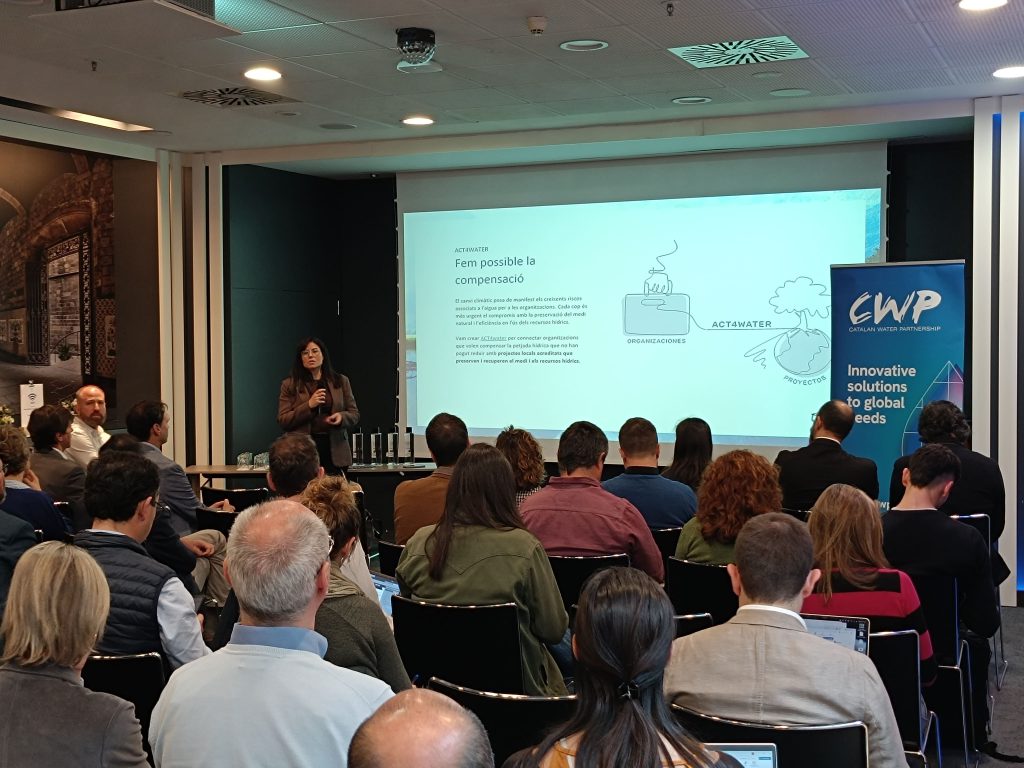
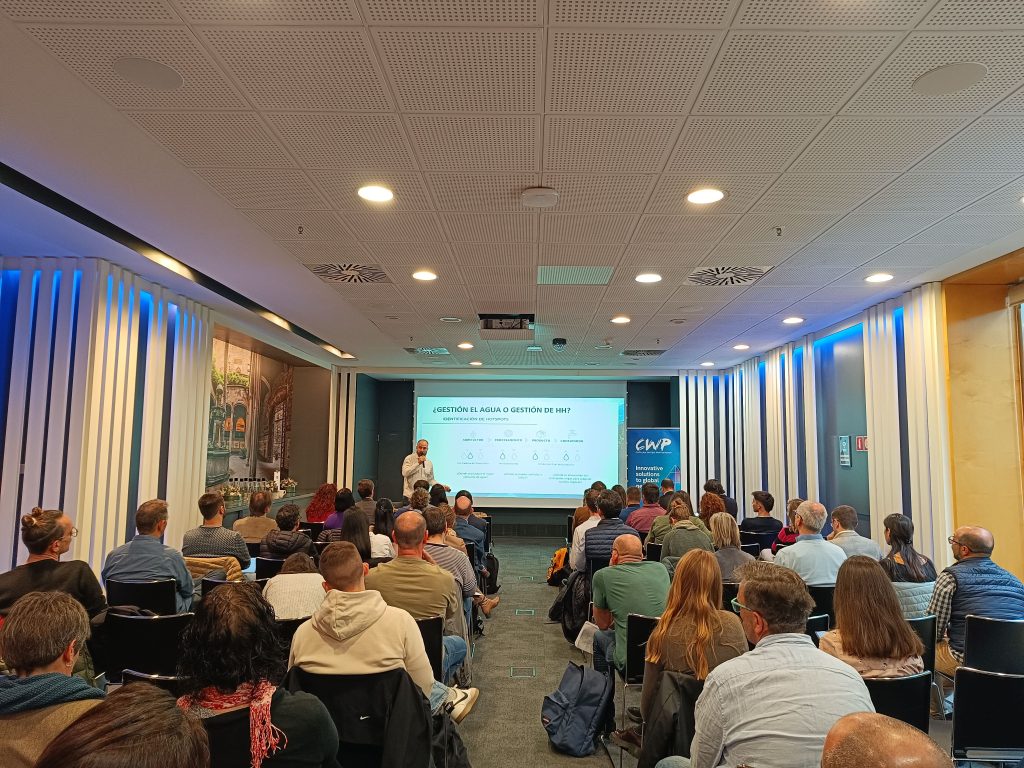
Next, Gonzalo Delacámara, academic director and adjunct professor at IE University, provided an academic vision based on international experiences. He explained the functioning of markets for private rights to use and use water, presenting examples from countries such as the United States, Chile and Australia. Delacámara analysed several emerging initiatives in the field of water credits on a global scale, highlighting both the advantages and the methodological challenges to avoid speculative practices and guarantee a true environmental and social return. Finally, he proposed a comparison between water rights markets and water credits, establishing parallels with carbon markets and opening a reflection on the future possibilities of this tool in the local context.
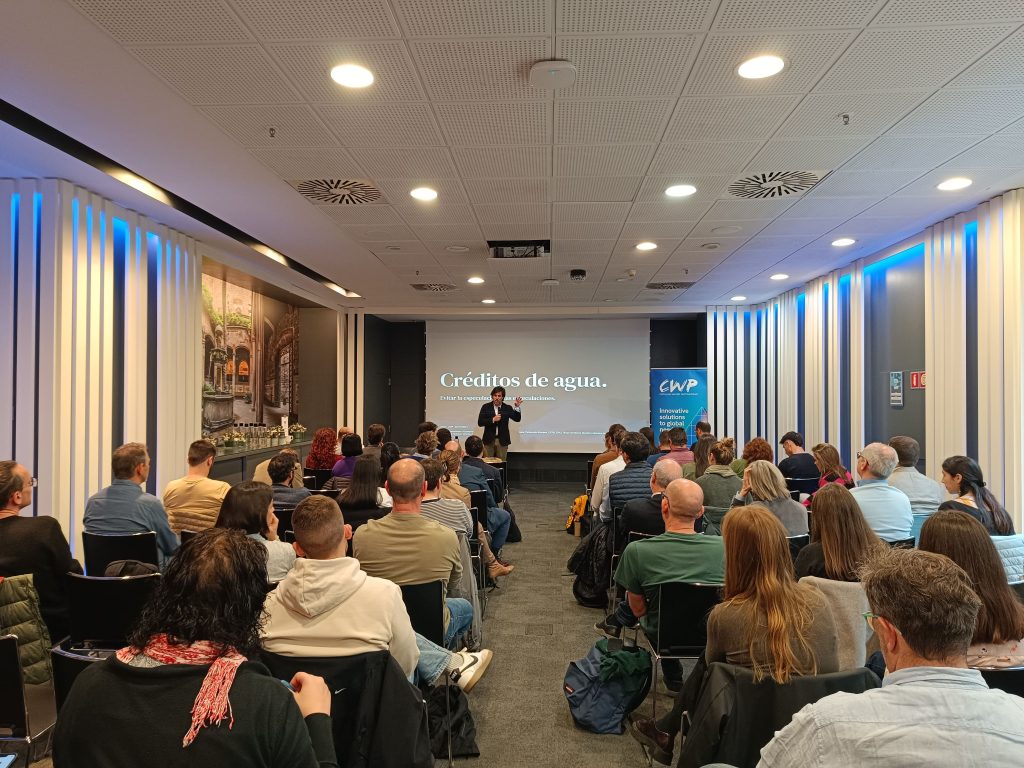
Gonzalo Delacámara, director acadèmic i professor adjunt d’IE University
Next, Enric Queralt, technical director of CUADLL, presented one of the few practical cases of water footprint compensation currently implemented in Catalonia: the aquifer recharge project using infiltration ponds located in the bed of the Llobregat River, in Molins de Rei. This initiative, initially co-financed by the European Interreg Sudoe programme, has subsequently been extended in collaboration with Damm and Molins.
For his part, Xavier García, researcher at ICRA-CERCA, presented recent research that shows the potential of forest management, and in particular forest thinning, to generate water credits, opening up new avenues of synergy between land management and water management.
Finally, Jordi Molist, director of the Supply Area of the Catalan Water Agency (ACA), shared some key ideas for the next hydrological planning cycle 2027-2032, providing the public administration’s point of view on the development of these mechanisms and their possible integration into water management policies. With an attendance of more than 80 participants, the conference represented a first step to open the debate around this innovative and emerging topic, laying the foundations for future collaborations and developments in the field of water footprint compensation and water credits in Catalonia.
